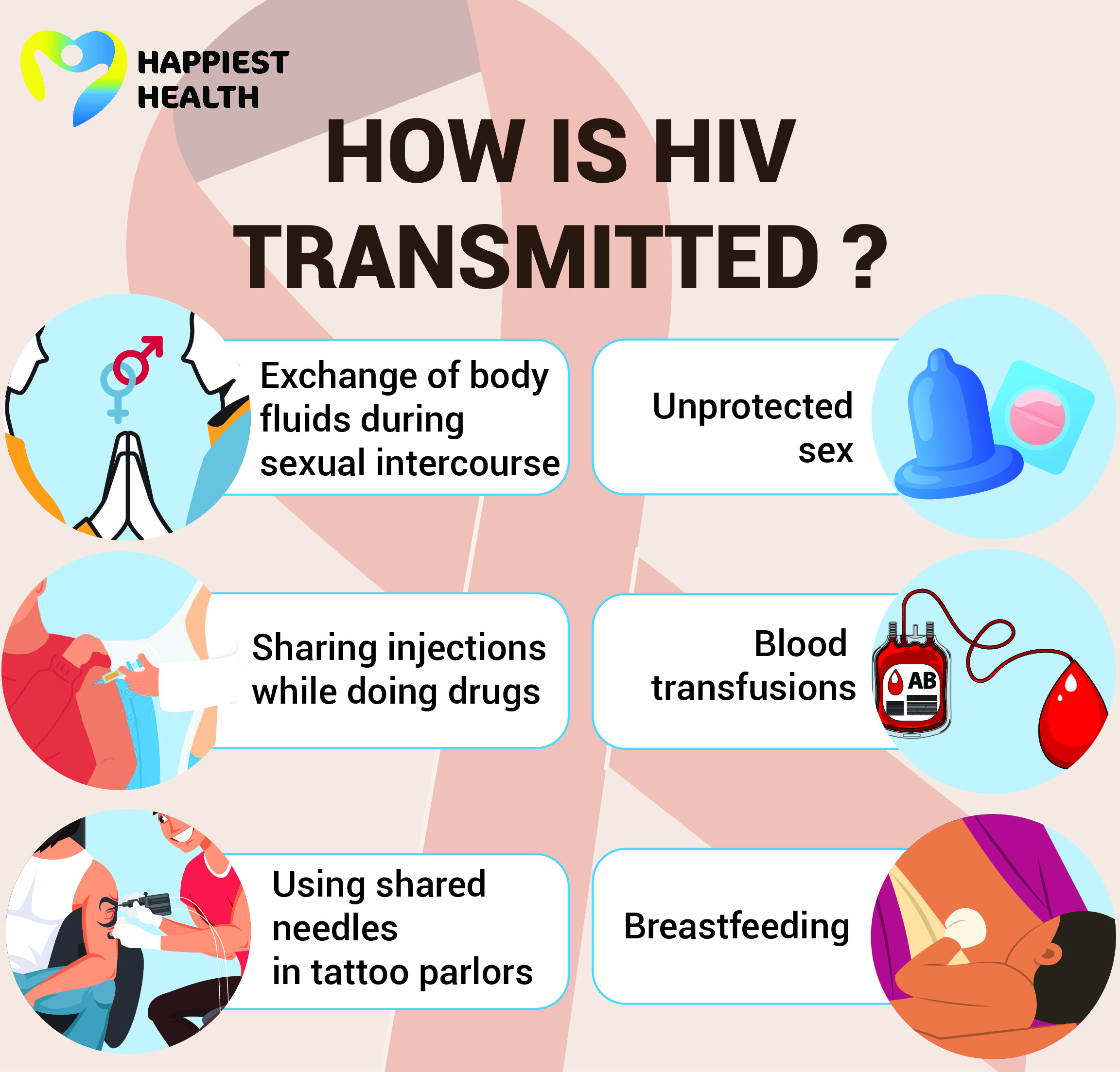
While the global fight against AIDS (acquired immune deficiency syndrome) has been able to reduce the prevalence of the infection to some extent, a lot remains to be done. According to the World Health Organization, around 39 million people were living with AIDS by the end of 2022, highlighting the importance of exercising caution and following safe sex practices to chip away at the number. “Safe sex practices are very important in preventing sexually transmitted diseases and infections such as AIDS, syphilis, chlamydia, hepatitis B and HPV,” says Dr Ooha Susmita, consultant psychiatrist and sexologist at Allo Health, Bangalore. Experts also recommend getting screened for AIDS and other STDs on a regular basis.
AIDS and HIV transmission
AIDS is caused by the human immunodeficiency virus (HIV), which impairs the immune system, adversely affecting the body’s ability to fight off infections. HIV transmission can be vertical or horizontal. “Vertical transmission occurs when the virus is passed from mother to child. Horizontal transmission occurs through sexual intercourse, sharing injections or needles, blood transfusions and exchange of body fluids,” explains Dr Susmita.
“When body fluids such as pre-seminal, seminal, vaginal and rectal fluids are exchanged between two people during vaginal, oral or anal sex, they can contract HIV,” informs Dr Rana Mondal, infertility specialist and laparoscopic surgeon, Renew Fertility Clinic, Kolkata. He adds that anal sex is four times more likely to transmit HIV compared to other forms of sexual intercourse.
Signs and symptoms of HIV
“HIV is a virus that affects the immune system, so it can easily go undetected until you get tested for it,” says Dr Divya Shetty, consultant, infectious diseases, Apollo Hospitals, Bangalore. Some typical symptoms of HIV include enlarged lymph nodes, fatigue, rashes (small, slightly raised lesions), weight loss, etc.

Safe intimate practices among the vulnerable
When it comes to contracting HIV or other STDs, sex workers are among the most vulnerable people in society due to having multiple partners. Some sex workers from Bangalore anonymously shared with Happiest Health that they support safe intimate practices and have been instrumental in ensuring condom vending machines are installed in public places such as toilets, buses and railway stations.
According to the National Family Health Survey, only 51% of men agreed to use a condom during their last paid sexual encounter. “Unprotected sex can cause a lot of issues,” shares a sex worker from Bangalore. “About 40% of men either bring or take condoms from us. However, there are others who would rather have sex without protection. Some men try to persuade us by offering more money for unprotected sex, but we don’t agree if they don’t use condoms.” These workers undergo a speculum test every three months and receive medication if they get infected.
Safe intimate practices to prevent HIV and other STDs
Dr Shetty says rapid advancements in medical technologies have increased the life expectancy of individuals with HIV over the years. To safeguard people against STDs and a spectrum of other infections, engaging in safe sexual practices is of utmost importance. Some measures to prevent the transmission of HIV or other pathogens are as follows:
♦ Use protection
Condoms are the primary way to prevent STDs. They create a shield by limiting exposure to body fluids, providing an efficacy of 97–98% when used correctly, say experts. It’s crucial to ensure the condom remains intact after intercourse, as viruses can be transmitted if the condom breaks, which in turn can lead to urinary tract infections (UTIs), fungal infections, vulvar warts and cervical cancer, among others.
♦ Avoid intimacy under the influence
It is best to avoid sexual activity under the influence of alcohol or drugs because it can impair your decision-making and lead to intimacy without protection. “Taking part in risky behaviors, like getting intimate under the influence of addictive substances or having multiple sexual partners, increases your chances of contracting STDs,” cautions Dr Susmita.
♦ Don’t share needles
One must avoid sharing needles with other people while doing drugs. Even in a healthcare setting, individuals as well as healthcare professionals must ensure syringes or needles aren’t being reused to administer medications or collect samples.
♦ Avoid multiple sexual partners
It is advised to not get involved with multiple sexual partners, as it makes you susceptible to STDs. Choosing your sexual partner wisely, being in a monogamous relationship and knowing your partner’s sexual history can help prevent STDs to a great extent, shares Dr Mondal.
♦ Get tested
If you’re sexually active or lead a promiscuous sex life, it is advisable to occasionally undergo an HIV antibody or antigen test, suggests Dr Shetty.
Takeaways
- Safe sex practices are crucial to prevent STDs and other infections such as AIDS, syphilis, chlamydia and HPV.
- There are two modes of HIV transmission: vertical and horizontal. Vertical transmission occurs when the virus is passed from mother to child. Horizontal transmission occurs through activities like sexual intercourse, blood transfusions and exchange of body fluids.
- Typical symptoms of HIV include enlarged lymph nodes, fatigue, rashes and weight loss.
- Measures like using protection during sexual intercourse, avoiding multiple sexual partners and undergoing occasional screening can help prevent conditions like AIDS and other STDs.

















